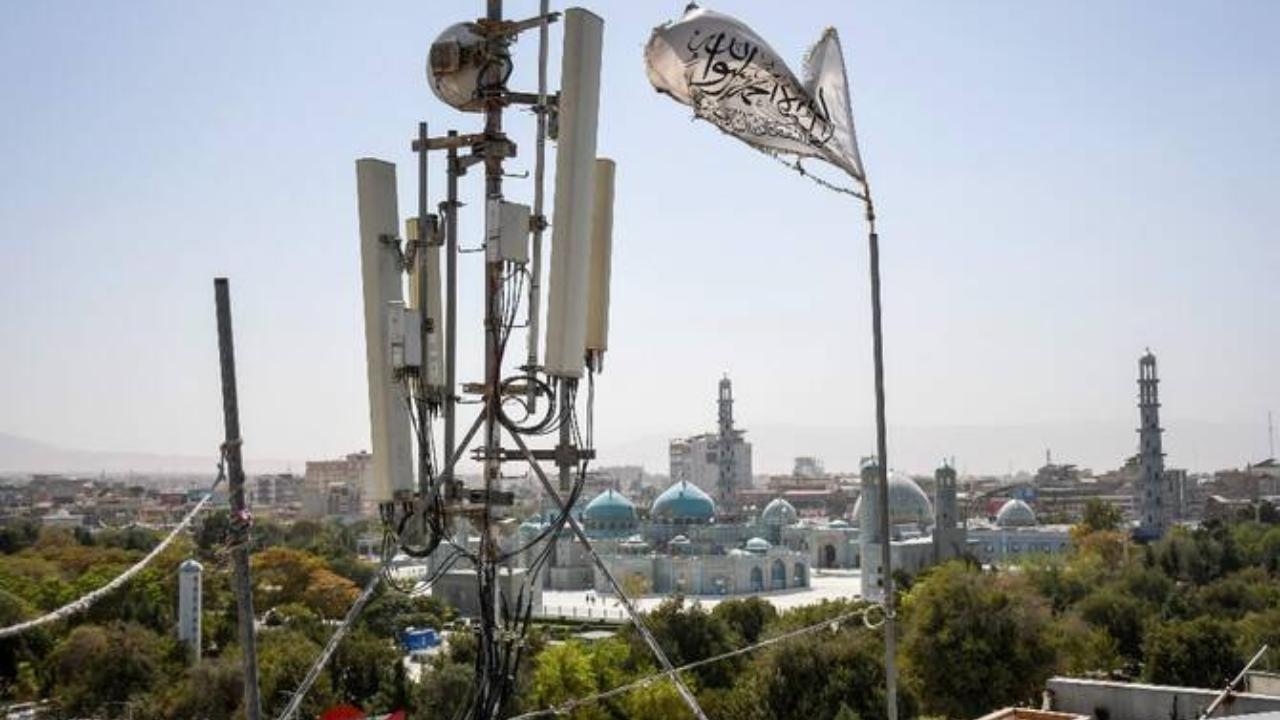
Join 10k+ people to get notified about new posts, news and tips.
Do not worry we don't spam!

Post by : Raman
China has successfully launched a new test satellite into space, aiming to advance its satellite internet technology. The mission took place on Tuesday at the Jiuquan Satellite Launch Centre, located in the remote northwest region of the country. This launch is part of China’s ongoing efforts to develop advanced space communication networks and improve internet access via satellites.
The satellite was carried into orbit aboard a Long March-2C carrier rocket, which is part of China’s long-standing Long March series. This rocket series has been the backbone of China’s space missions for decades. For this particular mission, the rocket was equipped with an additional component, the Yuanzheng-1S upper stage, also called Expedition-1S. This upper stage allows the satellite to reach its precise orbit efficiently after the main stage completes its work.
The launch went smoothly, and the satellite successfully reached its intended orbit. Achieving the correct orbit is critical because it ensures that the satellite can operate effectively and carry out its tasks.
The Long March-2C rocket is part of a long history of reliable rockets in China’s space program. This successful mission marks the 595th flight of the Long March series. Over the years, these rockets have carried satellites, cargo, and even human missions into space. Their consistent performance has helped China establish itself as a leader in space technology.
Each successful mission, including this one, improves China’s capabilities in satellite deployment, space research, and technological innovation.
Satellite internet is a method of providing internet access through satellites orbiting the Earth. Unlike traditional internet services that depend on cables or ground-based infrastructure, satellite internet can reach remote and rural areas where laying cables is difficult. This makes the technology especially valuable for improving global communication.
China’s new test satellite is designed to explore ways to enhance satellite internet services. The aim is to provide faster, more reliable internet, not just within China but potentially for users worldwide in the future.
The Jiuquan Satellite Launch Centre, located in China’s Gobi Desert, is one of the country’s primary space launch sites. Its remote location ensures safety during launches while allowing large-scale rocket operations. Over decades, Jiuquan has hosted numerous satellite launches, manned missions, and experimental projects. This successful test satellite launch adds to its long record of supporting China’s space goals.
The Yuanzheng-1S upper stage plays a crucial role in this mission. It acts as an additional stage to the main rocket, ensuring precise delivery of satellites into their target orbits. This technology allows engineers to make fine adjustments to the satellite’s trajectory, ensuring accurate positioning in space.
Precise satellite placement is essential for satellite internet networks, as it guarantees consistent communication coverage and reliable data transfer. The use of this advanced technology highlights China’s growing expertise in orbital mechanics and satellite deployment.
This successful launch represents a significant achievement for China’s space program. Reaching the 595th mission of the Long March series demonstrates the country’s long-term commitment to space exploration. Each launch contributes valuable experience, technological improvements, and research data.
The deployment of this test satellite will support further research and development in satellite internet technology. Engineers and scientists can use this satellite as a testing platform for future networks, helping improve connectivity, data speeds, and overall satellite communication performance.
China has ambitious plans to expand its satellite internet network, with a goal of achieving global coverage in the coming years. This test satellite is a critical step in that process. It allows engineers to test new technologies in orbit, gather essential data, and refine hardware for future missions.
With successful testing and deployment, China could launch a network of advanced satellites capable of providing global internet coverage. This could revolutionize access to the internet, especially in regions currently facing connectivity challenges.
China’s growing satellite internet network demonstrates its commitment to innovation in space and communication technologies. The test satellite not only strengthens domestic connectivity but also positions China as a key player in global satellite internet development.
The Long March-2C rocket’s successful launch, combined with the Yuanzheng-1S upper stage, illustrates the country’s growing expertise in space technology, satellite deployment, and orbital precision. Each mission enhances China’s capabilities and paves the way for more complex space operations.
The launch of China’s test satellite for satellite internet marks a milestone in the country’s space program. Conducted from the Jiuquan Satellite Launch Centre, the satellite was successfully placed into its intended orbit using the Long March-2C rocket and Yuanzheng-1S upper stage. This milestone, the 595th Long March mission, highlights China’s ongoing commitment to space technology and satellite internet development.
As China continues investing in satellite internet and space technologies, the world can expect more advanced missions in the near future. These efforts strengthen China’s position in global space exploration and lay the groundwork for improved internet access and communication worldwide.
China’s progress in satellite internet demonstrates the potential of combining advanced technology with strategic planning. With continued innovation, satellite networks could transform global connectivity, offering faster, reliable internet to millions in remote and underserved regions.
China space mission, satellite internet, Long March-2C, Yuanzheng-1S, Jiuquan Satellite Launch










Israel Expands Gaza City Operation, Residents Told to Leave
Israel widens Gaza City operation, urges residents to evacuate soon.

Taliban Bans WiFi in Afghan Province to Stop Immorality
Taliban bans WiFi in Afghan province, citing rise in immorality.

Trump may meet Zelensky next week to push for peace talks
Trump and Zelensky may meet next week to hold fresh peace talks.

Afghan Man Gets Life Sentence in Germany for Rally Stabbing
Afghan man sentenced to life in Germany over fatal rally stabbing.

Google Gemini AI Saree Trend Goes Wrong, Users Report ‘Creepy’ Edits
Google Gemini’s Nano Banana AI saree selfies trend sparks safety concerns as some edits appear creep

Pakistan Army Kills 31 Militants as Security Operations Rise
Army kills 31 militants amid rising presence and crackdown

Hundreds Mourn Yemeni Journalists Killed in Israeli Airstrikes
Funeral held for 31 Yemeni reporters killed in Israeli strikes.

Shipowner Tied to Beirut Port Blast Arrested in Bulgaria
Owner tied to Beirut blast caught in Bulgaria after long search.